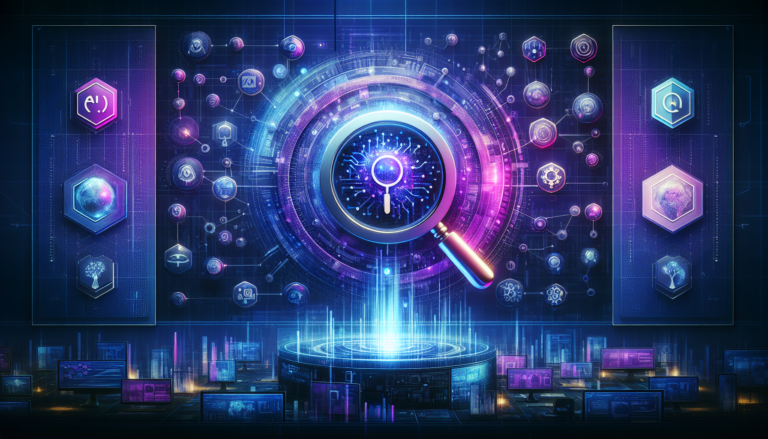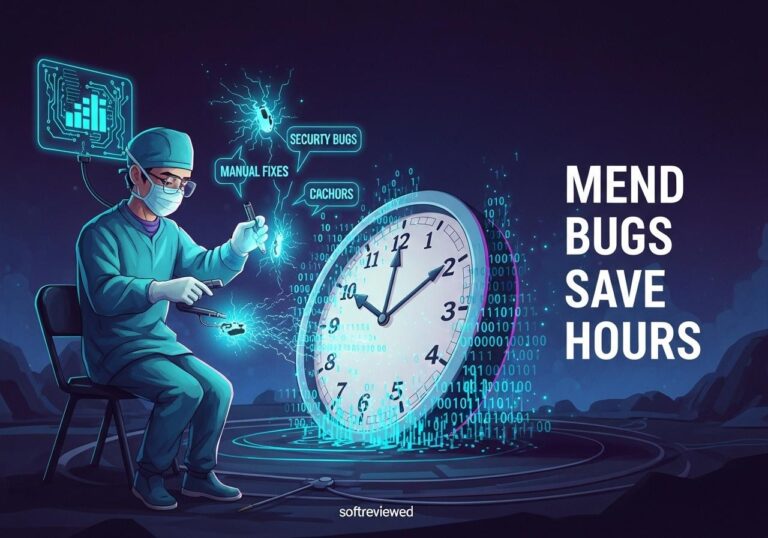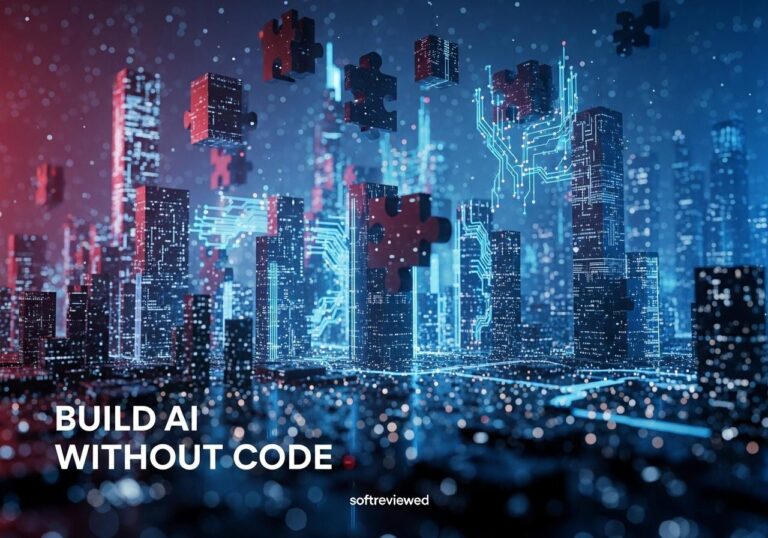Google’s Deep Research Feature
A revolutionary AI-powered research assistant in Gemini Advanced
🔍 Deep Research Capability
Google’s Gemini Advanced now includes an agentic AI feature that conducts comprehensive research and provides detailed reports with source links.
🔄 Intelligent Process
Creates multi-step research plans, browses the web, refines results, and generates organized reports in minutes.
📊 Organized Reports
Delivers well-structured reports with clear organization and direct links to original sources for deeper investigation.
⚡ Market Impact
Poses potential competition to Perplexity AI with more refined research capabilities, included free in Gemini Advanced.
📱 Availability
Currently available on desktop and mobile web, with mobile app integration planned for early 2025.
🔮 Future of Search
Set to transform traditional research methods with more efficient and comprehensive AI-powered solutions.
Beyond Perplexity: Does Google Deep Research Hold the Key to AI-Powered Insights?
The world of AI-driven search is rapidly evolving, with tools like Perplexity gaining popularity for their ability to provide concise, sourced answers. Now, Google Deep Research emerges as a contender, promising even deeper dives into complex topics. But is it truly a better alternative? We will examine the capabilities of Google Deep Research and explore how it compares to Perplexity, considering the needs of the general tech-interested user.
What Exactly is Google Deep Research? 🤔
Google Deep Research is a new feature integrated within the Google Gemini ecosystem. It leverages advanced reasoning and long-context capabilities, acting like a personal AI research assistant. Instead of just providing quick answers, it explores complex topics and compiles detailed reports. Think of it as a more structured and thorough approach to online research, going far beyond a simple search query. It's designed to scrape numerous websites, analyze information, and present the findings in an organized manner. This is powered by Google's Gemini 2.0 model.
How Does It Stack Up Against Perplexity AI? 🆚
Perplexity AI, on the other hand, is a conversational search engine that uses large language models (LLMs) to provide answers sourced from the web. Perplexity excels at providing concise, cited answers. It's known for its real-time information retrieval and ability to follow up with threads, diving deeper into specific aspects of a topic. It also allows users to specify the "focus" of the search, such as academic, social, or video-based information. Here’s a breakdown of key differences:
| Feature | Google Deep Research | Perplexity AI |
|---|---|---|
| Primary Function | In-depth research assistant; compiling reports on complex topics. | Conversational search engine providing cited answers to queries. |
| Output Style | Detailed reports, often in a structured format. | Concise, cited answers followed by suggested threads for deeper exploration. |
| Depth of Search | Scrapes numerous websites to build detailed reports. | Focuses on real-time answers with cited sources. |
| Focus | Deep, comprehensive research on specific complex questions. | Quickly providing information and allowing users to ask follow-up questions. |
| Underlying Model | Gemini 2.0 | Multiple LLMs including GPT-4o and Claude 3.5 (depending on the Perplexity version) |
| Integration | Part of the Gemini ecosystem. | Standalone app and website. |
The Benefits of Google Deep Research ✅

Here are the advantages of Google Deep Research:
Comprehensive Reports: It provides in-depth reports that summarize multiple sources, saving time and effort. Instead of just a simple answer, you get a mini-research paper on the topic.
Advanced Reasoning: The Gemini 2.0 model allows for sophisticated reasoning, helping it understand the nuances of the research topic.
Long-Context Capabilities: This allows the tool to keep track of the overall context of the search. It is more than just a series of individual searches.
- Time Saver: It automates the tedious process of manual research, extracting relevant details and presenting them in a readable report.
Potential Drawbacks ⛔
While promising, there are potential limitations:
Speed: Researching and compiling detailed reports may take longer than Perplexity's quick response time.
New Technology: As a new feature, it may still be in development. This means it could be prone to bugs or not as user-friendly as established search platforms.
Potential for Overload: The detailed reports may sometimes provide more information than is needed, potentially overwhelming a user seeking just a quick answer.
Perplexity's Strengths 💪
Perplexity has its own strengths:
Speed and Efficiency: It provides quick answers and citations, making it great for on-the-spot information retrieval.
Real-Time Info: It pulls current information, making it suitable for questions that require up-to-date results.
Conversational Approach: The thread follow-up feature allows you to explore topics by asking a series of related questions.
- Multiple LLMs: Users have the option to utilize different models, such as OpenAI's GPT-4o or Anthropic's Claude 3.5.
The Expert Take 🗣️
According to tech analysts, Google is aiming to "transform how we use the web," with features like Deep Research. Some have even asked if this new offering will put a nail in the coffin for Perplexity. While it is too early to say for sure, it highlights how this new tool is attempting to be a serious contender to other AI search platforms. Other tech influencers have gone as far as to claim Google Deep Research is “insane" due to its ability to "scrape the entire internet" for research purposes. However, Perplexity also has its proponents who emphasize the speed, ease of use, and versatility the platform offers.
Where is this Headed? 🚀
It's likely that we'll see Google Deep Research and Perplexity evolve into different but complementary roles. Deep Research could be seen as the go-to for major research tasks where one needs an in-depth analysis of a topic. Meanwhile, Perplexity might remain the ideal tool for quicker information retrieval and fast, focused answers to specific questions. The future will depend heavily on how quickly Google iterates on Deep Research, making it more useful and user-friendly. We are likely to see additional capabilities and features rolled out in upcoming months, so it is definitely a space to watch.
What Are the Potential Risks of AI in Relation to Tools Like Google Deep Research?
As technology advances, exploring the dangers of artificial intelligence today becomes crucial. Tools like Google Deep Research can inadvertently perpetuate biases, compromise privacy, and amplify misinformation. The potential risks associated with AI systems necessitate vigilant oversight to ensure they are developed and used safely for societal benefit.
Wrapping it Up 💡
In short, Google Deep Research shows real promise as a powerful research tool, particularly for those needing comprehensive analysis and detailed reports. It provides a deeper understanding of a topic, going beyond surface-level answers. While Perplexity remains a fantastic option for quick information retrieval, Google Deep Research is poised to take a significant place in the AI-driven search space. Whether it is "better" will depend entirely on user needs. It may not be a matter of one "beating" the other, but rather of choosing the correct tool for a specific task.
Perplexity AI Market Share Growth (2024)
This chart shows Perplexity AI’s market share evolution throughout 2024, highlighting its growth trajectory in the competitive AI chatbot space.







